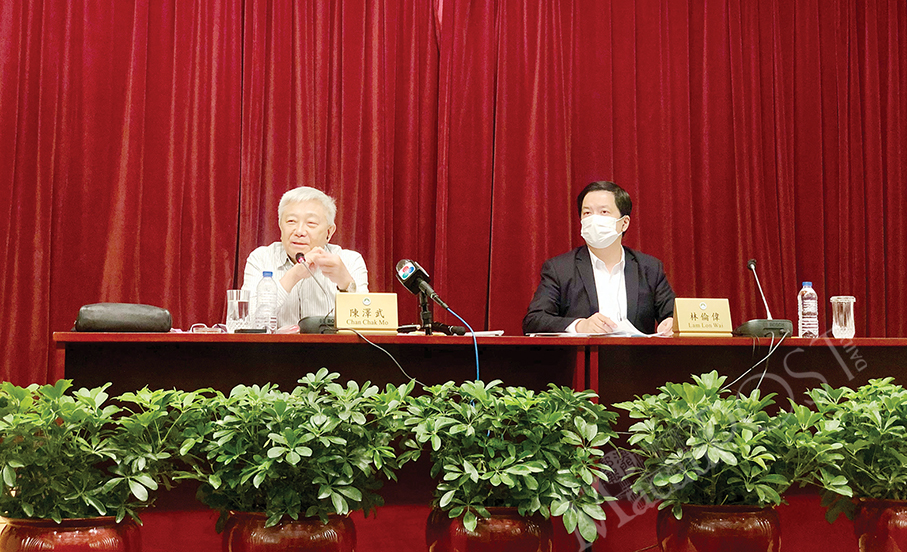Tony Wong
The government has submitted a bill to the Legislative Assembly (AL) proposing that pedestrians who use their mobile phone when crossing the road will be fined 300 patacas.
The bill also proposes the implementation of a driving-offence points system, according to which a driver will be banned from driving for a certain period of time after a certain number of points have been deducted because of having committed certain traffic offences.
The government proposes that the new Road Traffic Law will replace the current one enacted in 2007.
Secretary for Administration and Justice André Cheong Weng Chon, who is also the spokesman for the government’s top advisory Executive Council, announced during a press conference on December 11 that the government had finished drafting the new road traffic bill to be submitted to the legislature in due course for debate, review and vote. The bill was uploaded onto the website of the legislature yesterday, which is yet to schedule a plenary session for the debate and vote of the bill’s outline.
Cheong and Transport Bureau (DSAT) Director Kelvin Lam Hin San announced some details of the bill during the press conference on December 11.
The current Road Traffic Law has been in force since October 1, 2007.
The bill, which was uploaded onto the legislature’s website yesterday, proposes to bar pedestrians who are crossing the road from using mobile phones or all other types of mobile devices such as tablets and e-readers, except when they are using a mobile phone with a hands-free device. The bill proposes that the offenders will be fined 300 patacas.
In addition, the bill proposes stricter rules on drivers using mobile phones.
According to the current Road Traffic Law, those who are driving any kinds of vehicles are barred from using mobile phones except when they are using it with a hands-free device. Offenders face a fine of 600 patacas.
The bill proposes to bar public bus drivers from using a mobile phone even when using it with a hands-free device.
Consequently, according to the bill, those driving all other types of vehicles can still use a mobile phone when using it with a hands-free device.
The bill proposes to raise the fine for illegally using mobile phones or any other types of mobile devices while driving to 900 patacas.
Driving-offence points system
Meanwhile, according to the bill, the proposed driving-offence points system will have a total of 12 points for each driver. The bill proposes that a driver will be banned from driving for three months after six points or more have been deducted, while he or she will be banned from driving for six months after all 12 points have been deducted.
In the latter case, according to bill, the driver will be required to pass an exam for the temporary ban on driving to be lifted. He or she will have to pay for the exam.
The bill also proposes that a driver who has five points deducted within a two-year period, i.e., still having seven points on his or her record, can obtain three points if he or she chooses to take an exam and pass it, in which case the driver will also be required to pay for the exam.
According to the bill, the traffic offences to be covered by the proposed driving-offence points system will include drivers’ refusal to follow traffic police officers’ instructions, and drivers disobeying traffic signs.
Moreover, the bill also proposes to raise the penalties for drunk driving, drug driving, and speeding.
For instance, the bill proposes that drunk driving or drug driving will carry a prison term of up to two years, a change from the current maximum term of one year.
Pedestrians walk across a zebra crossing on Avenida de D. João IV in Nam Van. – Photo: Tony Wong








